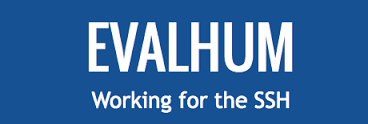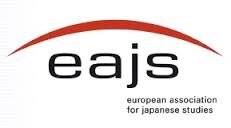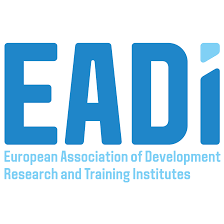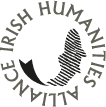 The European Association for Jewish Studies (EAJS) is the sole umbrella organisation for Europe representing this field of university studies. Its aims are the encouragement and support of the research and teaching of Jewish studies at university level in Europe, and other places of higher education and learning. The EAJS was founded as a voluntary academic association in 1981. Among its activities are the organization of congresses and colloquia, the publication of the bi-annual European Journal of Jewish Studies (EJJS), and the hosting of the Online Directory of Jewish Studies in Europe on this website. The Funders Database provides EAJS members with information about funding resources in Jewish Studies. More...
The European Association for Jewish Studies (EAJS) is the sole umbrella organisation for Europe representing this field of university studies. Its aims are the encouragement and support of the research and teaching of Jewish studies at university level in Europe, and other places of higher education and learning. The EAJS was founded as a voluntary academic association in 1981. Among its activities are the organization of congresses and colloquia, the publication of the bi-annual European Journal of Jewish Studies (EJJS), and the hosting of the Online Directory of Jewish Studies in Europe on this website. The Funders Database provides EAJS members with information about funding resources in Jewish Studies. More...
 DARIAH is a pan-european infrastructure for arts and humanities scholars working with computational methods. It supports digital research as well as the teaching of digital research methods. More...
DARIAH is a pan-european infrastructure for arts and humanities scholars working with computational methods. It supports digital research as well as the teaching of digital research methods. More...
 The EADH brings together and represents the Digital Humanities in Europe across the entire spectrum of disciplines that research, develop, and apply digital humanities methods and technology. The EADH also supports the formation of DH interest groups in Europe that are defined by region, language, methodological focus or other criteria. More...
The EADH brings together and represents the Digital Humanities in Europe across the entire spectrum of disciplines that research, develop, and apply digital humanities methods and technology. The EADH also supports the formation of DH interest groups in Europe that are defined by region, language, methodological focus or other criteria. More...
 This website is aimed at researchers and stakeholders interested in Horizon 2020's Societal Challenge 6 "Europe in a changing world". It is particularly relevant for researchers from the Socio-Economic Sciences and Humanities (SSH). The information on this website will help you find funding opportunities for your research project and provide you with up-to-date information on the European Commission's funding schemes. More...
This website is aimed at researchers and stakeholders interested in Horizon 2020's Societal Challenge 6 "Europe in a changing world". It is particularly relevant for researchers from the Socio-Economic Sciences and Humanities (SSH). The information on this website will help you find funding opportunities for your research project and provide you with up-to-date information on the European Commission's funding schemes. More...
 EvalHum brings together evaluation specialists, institutional stakeholders, and, most important, SSH researchers so as to take a fresh look at why evaluation is carried out and how it can best be achieved while respecting the characteristics of individual disciplines.
EvalHum brings together evaluation specialists, institutional stakeholders, and, most important, SSH researchers so as to take a fresh look at why evaluation is carried out and how it can best be achieved while respecting the characteristics of individual disciplines.
The EvalHum Initiative seeks to promote research in the Social Sciences and the Humanities (SSH) through improved evaluation procedures that are adapted to SSH research and communication practices. More...
 The general aims of the European Association for Japanese Studies (EAJS) are stimulating interest in and encouraging research in Japanese studies in all the countries of Europe as well as USA and Japan, promoting the flow of information and communication in this particular field of studies through its triennial international conference, but also through symposia and workshops. Furthermore, the EAJS aims at a further increase of its
The general aims of the European Association for Japanese Studies (EAJS) are stimulating interest in and encouraging research in Japanese studies in all the countries of Europe as well as USA and Japan, promoting the flow of information and communication in this particular field of studies through its triennial international conference, but also through symposia and workshops. Furthermore, the EAJS aims at a further increase of its  membership. EAJS is open especially to the gradually developing Japanese studies community in Eastern Europe, and tries to integrate and support younger scholars in the field of Japanese studies. More...
membership. EAJS is open especially to the gradually developing Japanese studies community in Eastern Europe, and tries to integrate and support younger scholars in the field of Japanese studies. More...
 The EURIAS Fellowship Programme is an initiative of NetIAS (Network of European Institutes for Advanced Study). The Network brings together 22 Institutes for Advanced Study across Europe. It was created in 2004 to stimulate a dialogue on IAS practices and possible forms of cooperation. Within the whole network, more than 500 researchers are hosted every year for up to one full academic year. More...
The EURIAS Fellowship Programme is an initiative of NetIAS (Network of European Institutes for Advanced Study). The Network brings together 22 Institutes for Advanced Study across Europe. It was created in 2004 to stimulate a dialogue on IAS practices and possible forms of cooperation. Within the whole network, more than 500 researchers are hosted every year for up to one full academic year. More...
 The European Consortium of Humanities Institutes and Centres will pursue a threefold purpose:
The European Consortium of Humanities Institutes and Centres will pursue a threefold purpose:
- To speak up on behalf of members in dialogues with ESF, EU and other funding and policy-making bodies to canvass the need for humanities research; to be able to speak on behalf of the humanities and develop a language for the (position of) humanities institutes in European universities today. More...
 EERA was founded in June 1994 as a result of discussions among many national educational research associations and several major research institutes throughout Europe which identified the need for a European association to foster the exchange of ideas amongst European researchers, promote collaboration in research, improve research quality and offer independent advice on educational research to European policy-makers, administrators and practitioners.
EERA was founded in June 1994 as a result of discussions among many national educational research associations and several major research institutes throughout Europe which identified the need for a European association to foster the exchange of ideas amongst European researchers, promote collaboration in research, improve research quality and offer independent advice on educational research to European policy-makers, administrators and practitioners.
EERA membership is made up of more than 30 national and regional Educational Research Associations from all parts of Europe. It is governed by the Council and the Executive Committee. The academic work is organised in thematic networks. From 1994 to 2008 EERA was constituted as a non-profit organisation under British Law and was based in Scotland. Since 2008 EERA has been based in Berlin, Germany and is constituted as a "Verein" (i.e. non-profit organisation under German Law).
EERA is dependent on the participation of the national associations to take forward its mission of promoting educational research in Europe and of fostering cooperation between associations of educational researchers. More...
 EADI, the European Association of Development Research and Training Institutes, is the leading European network in the field of development research and training.
EADI, the European Association of Development Research and Training Institutes, is the leading European network in the field of development research and training.
EADI is a Europe-wide network of institutes, researchers and students of various disciplines in the field of development studies. It organises activities and offers facilities for the international exchange of knowledge and experience in the professional field. Its most prominent activity is a General Conference devoted to a topical issue every three years. The official languages of EADI are English and French. More...
 The European Regional Science Association (ERSA) is the supranational grouping of national regional science associations across Europe.
The European Regional Science Association (ERSA) is the supranational grouping of national regional science associations across Europe.
The main functions of ERSA, apart from promoting the field of regional science, are to organize an Annual European Congress, an Annual Summer School, the EPAINOS prize for young scientists and the EIB-ERSA prize to recognize outstanding regional scientists. More...
 The European Association of the Study of Religions promotes the academic study of religions through the international collaboration of scholars in Europe whose research has a bearing on the subject.
The European Association of the Study of Religions promotes the academic study of religions through the international collaboration of scholars in Europe whose research has a bearing on the subject.
The objective of the EASR is pursued by the usual means of scholarly activity such as the arrangement of conferences, symposia or colloquia, the encouragement of scholarly publications, the exchange of information through electronic or other means, and other activities. More...
 C’est à Rome, en 1971, lors du XVème Congrès international des Sciences administratives, et plus précisément à l’occasion de réunions régionales organisées à l’intention des représentants des institutions de formation et de recherche en administration publique, qu’a été reconnue la nécessité de renforcer les contacts et les échanges entre les spécialistes européens, théoriciens et praticiens. More...
C’est à Rome, en 1971, lors du XVème Congrès international des Sciences administratives, et plus précisément à l’occasion de réunions régionales organisées à l’intention des représentants des institutions de formation et de recherche en administration publique, qu’a été reconnue la nécessité de renforcer les contacts et les échanges entre les spécialistes européens, théoriciens et praticiens. More...
 The Europaeum promotes academic links and research collaboration between its partners. We facilitate research projects, conferences, lectures, joint teaching programmes and much more. More...
The Europaeum promotes academic links and research collaboration between its partners. We facilitate research projects, conferences, lectures, joint teaching programmes and much more. More...
 La Fédération internationale des associations d’études classiques (FIEC) est une organisation faîtière qui englobe la plupart des associations d’études classiques d’importance nationale dans le monde. Elle a pour but de favoriser la collaboration entre les savants en faisant circuler l’information parmi les associations affiliées, en permettant le contact direct entre Délégués, en informant les autorités gouvernementales de l’importance des études classiques. Elle contribue aussi à soutenir les études classiques sur tous les continents, et de manière plus large elle prend toutes les mesures appropriées pour encourager les études classiques à un niveau international. More...
La Fédération internationale des associations d’études classiques (FIEC) est une organisation faîtière qui englobe la plupart des associations d’études classiques d’importance nationale dans le monde. Elle a pour but de favoriser la collaboration entre les savants en faisant circuler l’information parmi les associations affiliées, en permettant le contact direct entre Délégués, en informant les autorités gouvernementales de l’importance des études classiques. Elle contribue aussi à soutenir les études classiques sur tous les continents, et de manière plus large elle prend toutes les mesures appropriées pour encourager les études classiques à un niveau international. More...
 CLARIN makes digital language resources available to scholars, researchers, students and citizen-scientists from all disciplines, especially in the humanities and social sciences, through single sign-on access. CLARIN offers long-term solutions and technology services for deploying, connecting, analyzing and sustaining digital language data and tools. CLARIN supports scholars who want to engage in cutting edge data-driven research, contributing to a truly multilingual European Research Area. More...
CLARIN makes digital language resources available to scholars, researchers, students and citizen-scientists from all disciplines, especially in the humanities and social sciences, through single sign-on access. CLARIN offers long-term solutions and technology services for deploying, connecting, analyzing and sustaining digital language data and tools. CLARIN supports scholars who want to engage in cutting edge data-driven research, contributing to a truly multilingual European Research Area. More...
 With 20 years of policy-making history, our association brings together committed language specialists from around the European continent and beyond to support Europe's language infrastructure, improving societal and individual multilingualism and promoting quality language learning.
With 20 years of policy-making history, our association brings together committed language specialists from around the European continent and beyond to support Europe's language infrastructure, improving societal and individual multilingualism and promoting quality language learning.
Filling a unique niche in Europe's language panorama, the CEL/ELC has unique contact to universities, language institutions, the Council of Europe, and the European Commission, mediating at the various levels to envisage, anticipate and adapt to the future language landscape. More...
 The European Consortium for Political Research (ECPR) is an independent scholarly association, established in 1970. Its 350 institutional members across around 50 countries represent the leading universities, students and senior academics engaged in the research and teaching of political science worldwide. More...
The European Consortium for Political Research (ECPR) is an independent scholarly association, established in 1970. Its 350 institutional members across around 50 countries represent the leading universities, students and senior academics engaged in the research and teaching of political science worldwide. More...
 The Academy of Social Sciences is the national academy of academics, learned societies and practitioners in the social sciences. Its mission is to promote social science in the United Kingdom for the public benefit.
The Academy of Social Sciences is the national academy of academics, learned societies and practitioners in the social sciences. Its mission is to promote social science in the United Kingdom for the public benefit.
The Academy is composed of around 1100 individual Fellows, 42 Learned Societies, and a number of affiliates, together representing nearly 90,000 social scientists. Fellows are distinguished scholars and practitioners from academia and the public and private sectors. Most Learned Societies in the social sciences in the UK are represented within the Academy. More...
 We have an invaluable network of international academics, science policy experts, key decision-makers and stakeholders on the European and global research landscape. Our College of Experts is a subset of our broader network, including over 5000 highly-skilled experts who are committed to participating in ESF-led peer review. In addition, we have set up permanent Review Panels whose members meet regularly to evaluate grant proposals submitted in response to calls implemented by our partners. More...
We have an invaluable network of international academics, science policy experts, key decision-makers and stakeholders on the European and global research landscape. Our College of Experts is a subset of our broader network, including over 5000 highly-skilled experts who are committed to participating in ESF-led peer review. In addition, we have set up permanent Review Panels whose members meet regularly to evaluate grant proposals submitted in response to calls implemented by our partners. More...
 The Society aims, of course, to promote comparative legal history, the explicit comparison of legal ideas and institutions in two or more legal traditions. We acknowledge, too, that comparative law and legal history (internal or external) are fundamentally related. Both comparatists and legal historians are travellers: the one in space, the other in time. If only to establish context to more restricted research, legal historians should always look beyond the spatial borders and jurisdictional boundaries—including our present national legal systems—that are themselves products of the past. More...
The Society aims, of course, to promote comparative legal history, the explicit comparison of legal ideas and institutions in two or more legal traditions. We acknowledge, too, that comparative law and legal history (internal or external) are fundamentally related. Both comparatists and legal historians are travellers: the one in space, the other in time. If only to establish context to more restricted research, legal historians should always look beyond the spatial borders and jurisdictional boundaries—including our present national legal systems—that are themselves products of the past. More...
 The purpose of the Association is to promote and foster, by every possible means, all scholarly activities related to Chinese Studies in Europe. The Association shall not engage in any political activity.
The purpose of the Association is to promote and foster, by every possible means, all scholarly activities related to Chinese Studies in Europe. The Association shall not engage in any political activity.
L’Association a pour but de promouvoir et de favoriser par tous moyens toutes activités scientifiques relevant des études chinoises en Europe. Elle n’aura aucune activité politique. More...
 CARMEN links research institutions, universities, interest groups and individuals with a common scholarly interest in the study of the Middle Ages. It encompasses scholars from all continents to create an open and truly international platform for co-operation in the field of medieval research. More...
CARMEN links research institutions, universities, interest groups and individuals with a common scholarly interest in the study of the Middle Ages. It encompasses scholars from all continents to create an open and truly international platform for co-operation in the field of medieval research. More...
 ECPSA was established to promote the discipline’s interests and pursue its professional goals. It seeks to make political science more meaningful in public debate and policy-making.
ECPSA was established to promote the discipline’s interests and pursue its professional goals. It seeks to make political science more meaningful in public debate and policy-making.
Among other things, the union of national associations is a reaction to the increasing harmonisation of the European higher education landscape. ECPSA creates a framework for the cooperation and exchange in Europe related to all aspects of political science as an academic discipline and its professional organisation. More...
 The European Sociological Association (ESA) aims to facilitate sociological research, teaching and communication on European issues, and to give sociology a voice in European affairs.
The European Sociological Association (ESA) aims to facilitate sociological research, teaching and communication on European issues, and to give sociology a voice in European affairs.
Europe is in the midst of massive changes. Sociology has much to contribute to European level debates and developments. The ESA has an important role to play in organising the European debate and setting the agenda. More...
 The European Society for Environmental History promotes the study of environmental history in all academic disciplines and encourages anyone who has an interest in the field to join and become involved. More...
The European Society for Environmental History promotes the study of environmental history in all academic disciplines and encourages anyone who has an interest in the field to join and become involved. More...
 The Irish Humanities Alliance (IHA) was formed in September 2013. It is a joint initiative of humanities researchers within eleven higher education and research institutions, including all of the universities, North and South, Dublin Institute of Technology and the Royal Irish Academy.
The Irish Humanities Alliance (IHA) was formed in September 2013. It is a joint initiative of humanities researchers within eleven higher education and research institutions, including all of the universities, North and South, Dublin Institute of Technology and the Royal Irish Academy.
The Alliance is working to generate public awareness of the importance of humanities teaching and research in higher education and society at large. More...
 The object of Academia Europaea is the advancement and propagation of excellence in scholarship in the humanities, law, the economic, social, and political sciences, mathematics, medicine, and all branches of natural and technological sciences anywhere in the world for the public benefit and for the advancement of the education of the public of all ages in the aforesaid subjects in Europe. More...
The object of Academia Europaea is the advancement and propagation of excellence in scholarship in the humanities, law, the economic, social, and political sciences, mathematics, medicine, and all branches of natural and technological sciences anywhere in the world for the public benefit and for the advancement of the education of the public of all ages in the aforesaid subjects in Europe. More...
 C’est aux S.H.S. qu’il incombe, à rebours de cette culture de l’immédiateté qui produit des réponses relevant parfois plus de l’impulsion que de la décision éclairée, de prendre de la distance par rapports aux faits et de distinguer connaissances, informations, opinions et croyances. Cet effort de discernement est particulièrement nécessaire pour la compréhension du phénomène de radicalisation trop souvent réduit à une problématique sécuritaire. Ce que la psychologie cognitive, la linguistique, la sociologie du numérique, l’anthropologie et l’histoire ont à nous dire du djihadisme n’est pas moins fondamental pour s’en prémunir que nos stratégies de défense ou de renseignement.
C’est aux S.H.S. qu’il incombe, à rebours de cette culture de l’immédiateté qui produit des réponses relevant parfois plus de l’impulsion que de la décision éclairée, de prendre de la distance par rapports aux faits et de distinguer connaissances, informations, opinions et croyances. Cet effort de discernement est particulièrement nécessaire pour la compréhension du phénomène de radicalisation trop souvent réduit à une problématique sécuritaire. Ce que la psychologie cognitive, la linguistique, la sociologie du numérique, l’anthropologie et l’histoire ont à nous dire du djihadisme n’est pas moins fondamental pour s’en prémunir que nos stratégies de défense ou de renseignement. 





























/https%3A%2F%2Fprofilepics.canalblog.com%2Fprofilepics%2F1%2F0%2F1076071.jpg)